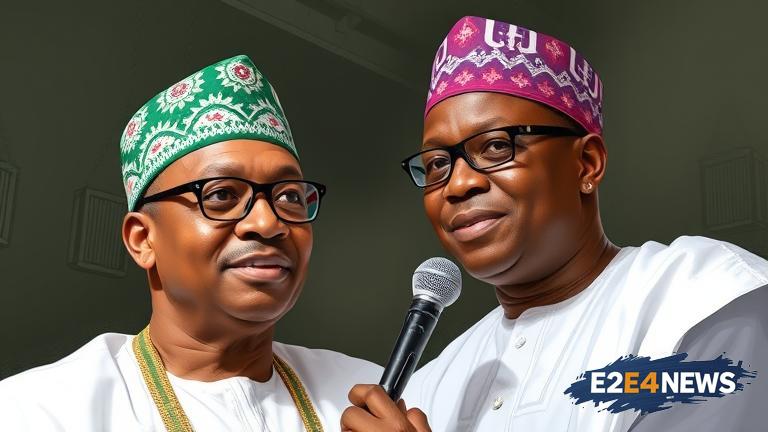The Peoples Democratic Party (PDP) has taken a significant step towards the 2027 presidential election by zoning the presidency to the Southern region of Nigeria. This decision was made by the party’s National Executive Committee (NEC) in a bid to strengthen its chances of winning the election. The zoning formula has sparked intense interest from several prominent politicians from the South, including former President Goodluck Jonathan and former Anambra State Governor Peter Obi. Jonathan, who has been rumored to be considering a return to politics, is seen as a strong contender for the PDP presidential ticket. Obi, on the other hand, has been gaining popularity among Nigerians, particularly the youth, due to his track record of good governance and economic management. The PDP’s decision to zone the presidency to the South is seen as a strategic move to counter the All Progressives Congress (APC) which has been dominating the political landscape in the North. The party’s NEC has also announced that it will conduct a thorough review of its constitution to ensure that it is in line with the current political realities. The review is expected to lead to significant changes in the party’s leadership structure and electoral processes. The PDP has been facing internal crises in recent times, with several factions emerging and threatening to destabilize the party. However, the zoning decision has been hailed as a major breakthrough, with many party members expressing optimism that it will help to unite the party and strengthen its chances of winning the presidential election. The party’s leadership has also announced plans to conduct a series of consultations with stakeholders, including party members, civil society organizations, and traditional rulers, to ensure that the party’s policies and programs are in line with the needs and aspirations of Nigerians. The consultations are expected to lead to the development of a comprehensive policy framework that will guide the party’s campaign and governance strategies. The PDP’s zoning decision has also sparked reactions from other political parties, with some hailing it as a positive development and others criticizing it as a desperate attempt to cling to power. The APC has described the PDP’s zoning decision as a ‘last-minute’ attempt to salvage its dwindling fortunes, while the Labour Party has hailed it as a ‘bold’ move that will help to promote national unity and stability. As the 2027 presidential election approaches, the PDP’s zoning decision is expected to have significant implications for the country’s political landscape. The party’s ability to manage its internal crises and present a united front will be crucial in determining its chances of winning the election. The PDP’s leadership has also announced plans to embark on a series of campaigns and rallies across the country, to mobilize support for its presidential candidate and promote its policies and programs. The campaigns are expected to be intense, with the party’s leaders and members engaging in door-to-door campaigns, town hall meetings, and social media outreach. The PDP’s zoning decision has also raised questions about the party’s commitment to promoting national unity and stability. Some critics have argued that the party’s decision to zone the presidency to the South is a ‘regional’ approach that will further divide the country along regional lines. However, the party’s leadership has defended the decision, arguing that it is a ‘strategic’ move that will help to promote national unity and stability by giving the South a sense of belonging and inclusion. As the debate over the PDP’s zoning decision continues, one thing is clear: the 2027 presidential election will be a defining moment in Nigeria’s history, with significant implications for the country’s political landscape and future development. The PDP’s ability to manage its internal crises, present a united front, and promote its policies and programs will be crucial in determining its chances of winning the election. The party’s leadership has also announced plans to establish a series of committees and task forces to oversee the implementation of its policies and programs. The committees are expected to be composed of party members, civil society organizations, and traditional rulers, and will be responsible for monitoring the party’s progress and providing feedback to the leadership. The PDP’s zoning decision has also sparked interest from international observers, who are keenly watching the developments in Nigeria’s political landscape. The international community has been calling for free and fair elections in Nigeria, and the PDP’s zoning decision is seen as a positive step towards promoting national unity and stability.
